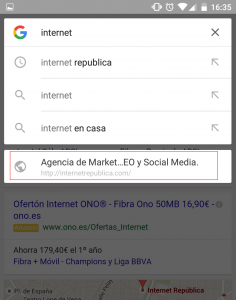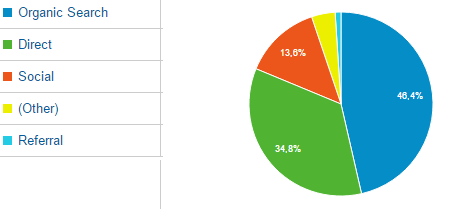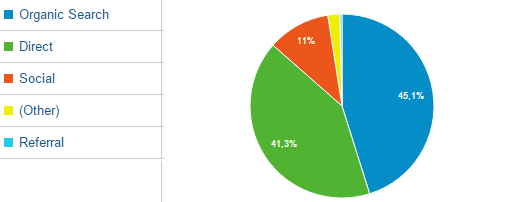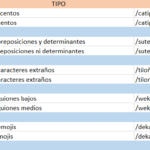
Problems measuring organic traffic from mobile devices as direct traffic
Direct traffic corresponds to the flow of data to your site without references on the headings that client and server send each other. When does this happen? Direct traffic corresponds basically to any session for which Google Analytics cannot determine the referrer. This includes among others:
- Writing the domain on the address bar.
- Clicking on a web saved as favourite.
- Clicking on a link from an email.
- Clicking on a link from Microsoft Office or a PDF file.
- Accessing the website from a shortened URL.
- In some cases, it could also be that accessing a site organically, the traffic is registered as direct.
- Even the user could have configured his or her computer so that it does not display information of the reference when visiting other sites.
As we can see, the direct traffic comes from a wide range of sources, which makes it hard to analyse and process. Unfortunately, it is not always possible to take measures to ensure an accurate follow-up of the traffic.
Whereas for e-mail campaigns, for example, it is possible to tag the links used in the campaigns by adding parameters, we cannot do the same with all the sources. Unfortunately, in many occasions we have to face a bad traffic assignation in Google Analytics.
In this sense, we detected a significant increase in direct traffic coming from mobile devices, so we tried to find out why. Our research helped us learn how Google’s search app sends the reference data.
While browsers such as Safari or Chrome send the referrer organic correctly, Android’s search engine does not send reference data, so the traffic is incorrectly classified as being direct.

Traffic from mobile devices is growing, and the trend does not seem to be slowing down. This means that we have a problem, because it is doing an incorrect attribution through channels and the campaign for acquiring organic traffic may seem inefficient due to those traffic leaks.
The case of Internet República
If we analyse the specific case of Internet República, we can see how direct traffic has an importance of about 20% of the total traffic of the site, whereas organic traffic accounts for about 60%.

Analysing the channels for users of mobile devices, these figures change. Direct and organic traffic account now for approximately 35% and 46%, respectively, i.e. the direct traffic increases while organic traffic goes down almost 15%.

Finally, if we only filter the sessions on Android devices, direct traffic goes up to 41.3%, whereas organic traffic goes down even more, to 45.1%. This “anomalous” increase would be linked to the incorrect attribution we talked about before.

But then… How can we measure that organic traffic on Android?
- We exclude from the total direct traffic the traffic to the home and the main sections.
Obviously, it is not very realistic that people memorize a URL with different web browsing levels or a very old URL that they will type on the search bar. Therefore, we could think that the traffic to those URLs are sources of other URLs. - We exclude from the resulting traffic all the traffic coming from social campaigns.
- We filter by “new users”, assuming that returning users already knew the brand, so they belong to direct traffic.
- We could consider that the resulting traffic is organic traffic wrongly categorized as direct.
Artículos relacionados
Internet República
Latest posts by Internet República (see all)
- New Instagram update: reel achievements - 19 October, 2023
- Elon Musk has bought Twitter. What does this mean? - 27 April, 2022
- NFTs ARE ARRIVING ON SOCIAL MEDIA - 21 February, 2022





